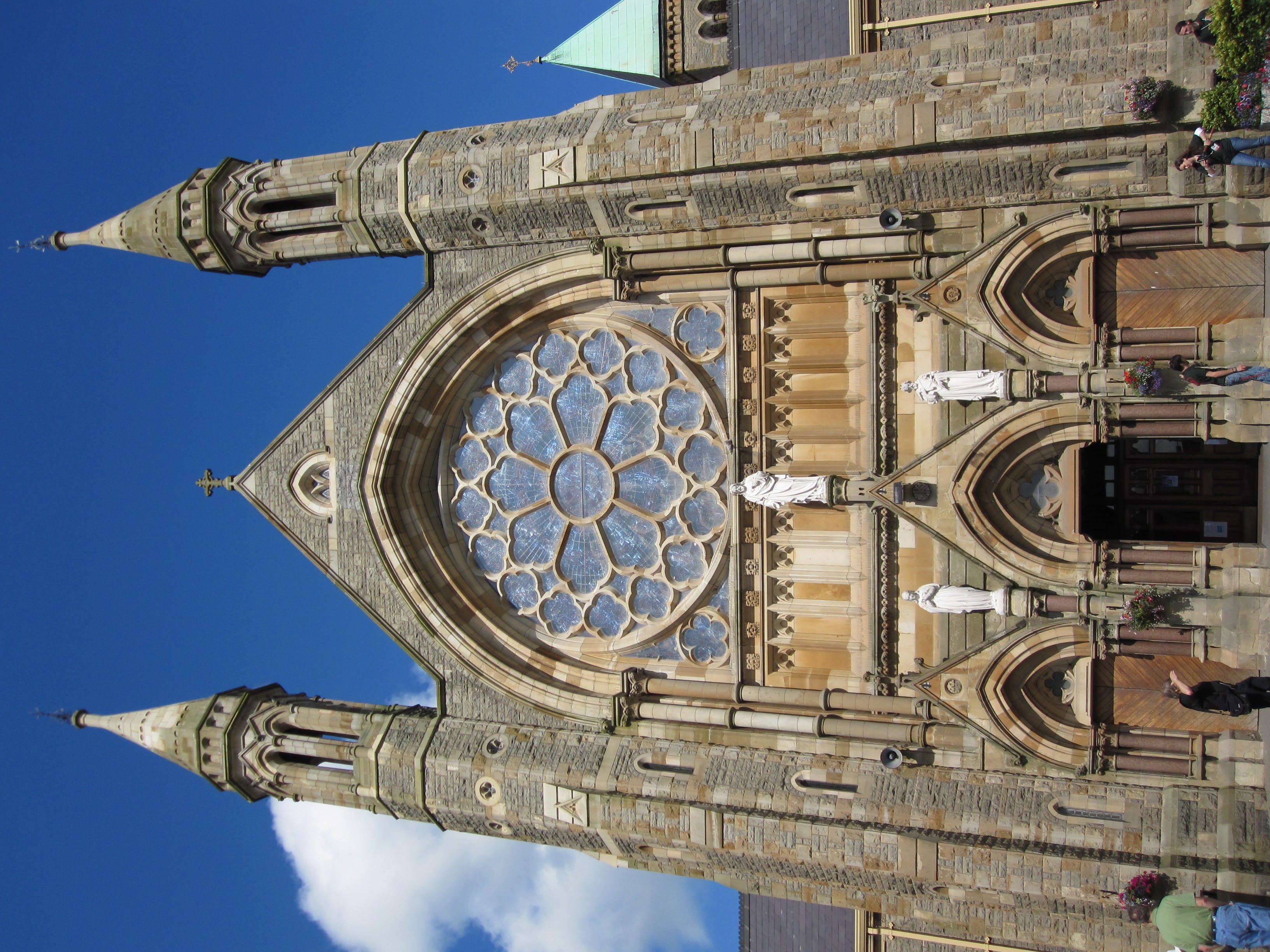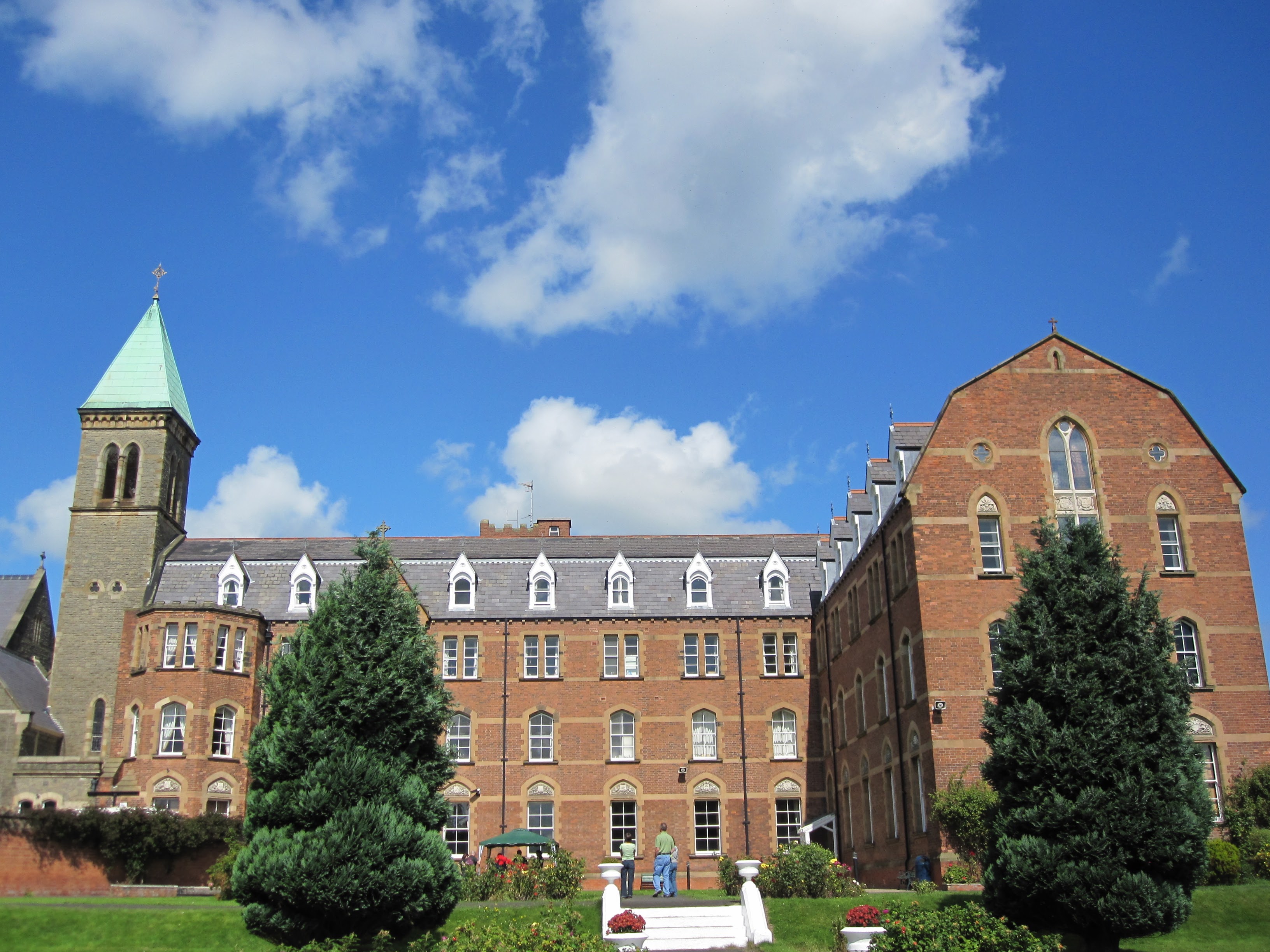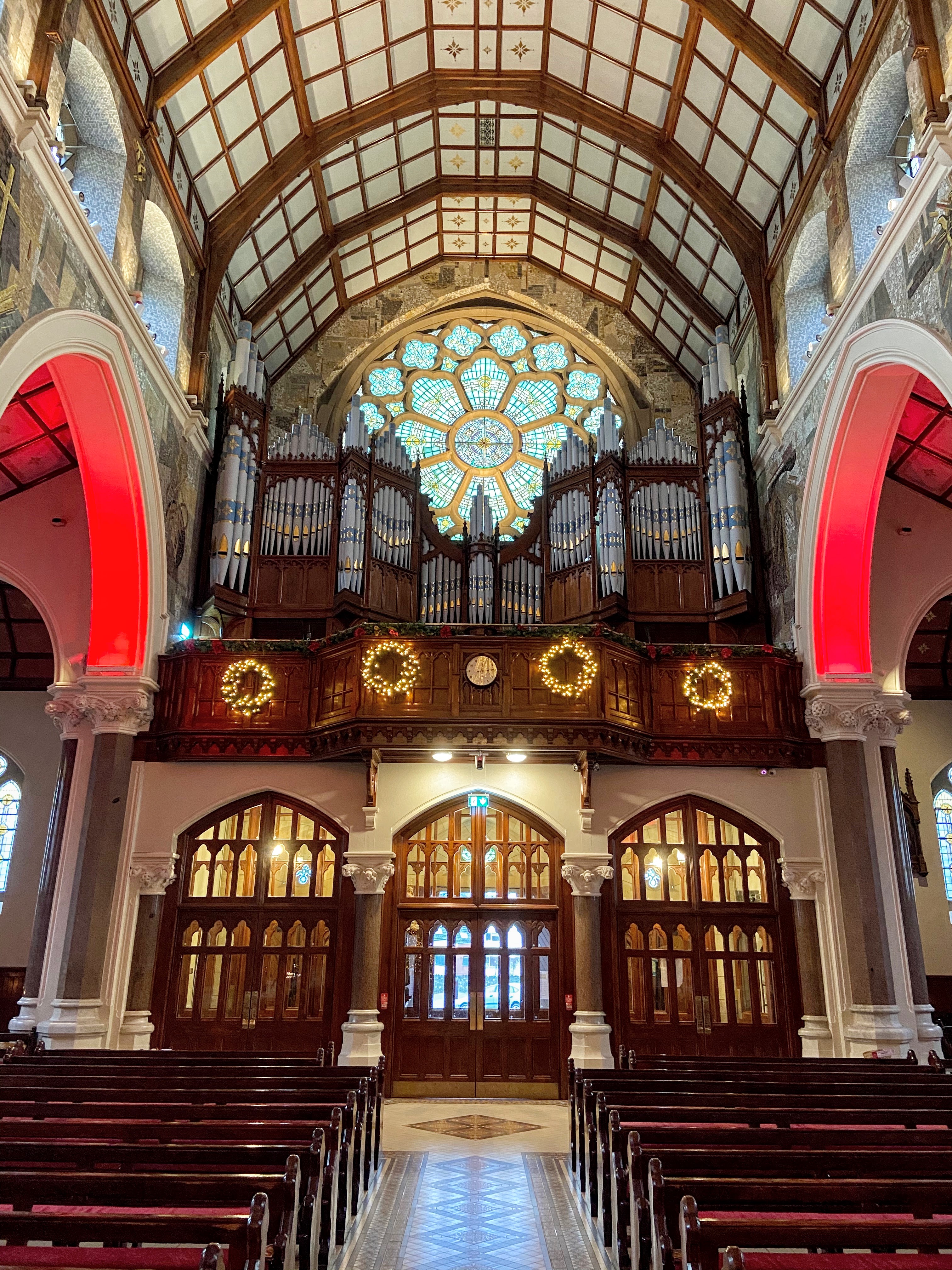Clonard Monastery on:
[Wikipedia]
[Google]
[Amazon]
 Clonard Monastery is a
Clonard Monastery is a



Official Website
{{Authority control Churches in Belfast Roman Catholic churches in Belfast Roman Catholic monasteries in Northern Ireland Religious buildings and structures in Belfast Roman Catholic churches in Northern Ireland Grade B+ listed buildings
 Clonard Monastery is a
Clonard Monastery is a Catholic church
The Catholic Church (), also known as the Roman Catholic Church, is the List of Christian denominations by number of members, largest Christian church, with 1.27 to 1.41 billion baptized Catholics Catholic Church by country, worldwid ...
located off the Falls Road in Belfast
Belfast (, , , ; from ) is the capital city and principal port of Northern Ireland, standing on the banks of the River Lagan and connected to the open sea through Belfast Lough and the North Channel (Great Britain and Ireland), North Channel ...
, Northern Ireland, and home to a community of the Redemptorists
The Redemptorists, officially named the Congregation of the Most Holy Redeemer (), abbreviated CSsR, is a Catholic clerical religious congregation of pontifical right for men (priests and brothers). It was founded by Alphonsus Liguori at Scala ...
religious order
A religious order is a subgroup within a larger confessional community with a distinctive high-religiosity lifestyle and clear membership. Religious orders often trace their lineage from revered teachers, venerate their Organizational founder, ...
.
History
In late 19th century Belfast, the Catholic population grew to such an extent that the provision of pastoral support to the working class was practically impossible for members of the diocesan clergy. TheBishop of Down and Connor
The Bishop of Down and Connor () is an episcopal title which takes its name from the town of Downpatrick (located in County Down) and the village of Connor (located in County Antrim) in Northern Ireland. The title is still used by the Catholic C ...
Henry Henry
Henry Henry (22 May 1846 – 8 March 1908) was an Irish Roman Catholic Prelate and from 1895 until 1908 he held the title Lord Bishop of Down and Connor. He was known for his energy and zeal, as well as his overt activism in local politics, ...
invited the Redemptorists
The Redemptorists, officially named the Congregation of the Most Holy Redeemer (), abbreviated CSsR, is a Catholic clerical religious congregation of pontifical right for men (priests and brothers). It was founded by Alphonsus Liguori at Scala ...
religious order
A religious order is a subgroup within a larger confessional community with a distinctive high-religiosity lifestyle and clear membership. Religious orders often trace their lineage from revered teachers, venerate their Organizational founder, ...
to come to Belfast in 1896.
Initially the Redemptorists built a small tin church in the grounds of Clonard House in 1897. In 1890 a monastery or community residence was opened in these grounds in the early French Gothic style. Eventually in 1911 the ''Church of the Holy Redeemer'' opened in the grounds of the community residence replacing the tin church.
Restoration
In 2008 the church was restored in a £3,000,000, four year project. The work was completed in 2012.


Religious devotion
Over the years the Clonard community has promoted a range of initiatives in religious devotion. One of the earliest was the establishment ofconfraternities
A confraternity (; ) is generally a Christian voluntary association of laypeople created for the purpose of promoting special works of Christian charity or piety, and approved by the Church hierarchy. They are most common among Catholics, L ...
for men and women which occurred in 1897 and which were, at the time, an innovative combination of religious services and instruction and proved extremely popular. However, due to declining numbers the women's confraternity ceased to function in 2019 and the following years the men's confraternity closed.
According to a book on the history of the community two further devotional developments took place at Clonard "the first was the inauguration of a 'perpetual' novena in honour of Our Lady of Perpetual Succour. The second, was the 'Mission to non-Catholics', made possible in part by the easing of sectarian tension produced by the shared danger of war."
The Clonard community continues to hold the annual Novena
A novena (from , "nine") is an ancient tradition of devotional praying in Christianity, consisting of private or public prayers repeated for nine successive days or weeks. The nine days between the Feast of the Ascension and Pentecost, when the ...
in honour of Our Lady of Perpetual Succour attracting an accumulated number of over 100,000 pilgrims, Catholic and Protestant, from across Ireland.
Clonard and The Troubles
Clonard sits on the frontline ofthe troubles
The Troubles () were an ethno-nationalist conflict in Northern Ireland that lasted for about 30 years from the late 1960s to 1998. Also known internationally as the Northern Ireland conflict, it began in the late 1960s and is usually deemed t ...
which erupted in Belfast in August 1969, located as it is, at an Interface area
Interface area is the name given in Northern Ireland to areas where segregated nationalist and unionist residential areas meet. They have been defined as "the intersection of segregated and polarised working class residential zones, in areas w ...
between the mainly Catholic Falls Road district and the mainly Protestant Shankill Road
The Shankill Road () is one of the main roads leading through West Belfast, in Northern Ireland. It runs through the working-class, predominantly loyalist, area known as the Shankill.
The road stretches westwards for about from central Belfast ...
district. At the rear of the monastery was located Bombay Street and Cupar Street which led on to the Shankill Road.
On 14 August 1969, loyalists from the Shankill Road launched a series of attacks on the houses owned by Catholics in those streets. The residents were forced to flee and many of the houses were burnt to the ground including the whole of Bombay Street.
The priests from Clonard were actively involved from the outset in attempting to safeguard the local residents.
Two of Northern Ireland's most significant clergy who worked for peace, Frs. Alec Reid and Gerry Reynolds, lived here.
Contemporary Pastoral Outreach
In 1981 members of the Redemptorist community at Clonard established links with Fitzroy Presbyterian Church nearQueen's University, Belfast
The Queen's University of Belfast, commonly known as Queen's University Belfast (; abbreviated Queen's or QUB), is a public research university in Belfast, Northern Ireland, United Kingdom. The university received its charter in 1845 as part of ...
in the south of the city and the monastery became a centre for peacemaking and reconciliation. Secret conversations between John Hume
John Hume (18 January 19373 August 2020) was an Irish nationalist politician in Northern Ireland and a Nobel Peace Prize laureate. A founder and leader of the Social Democratic and Labour Party, Hume served in the Parliament of Northern Irel ...
and Gerry Adams
Gerard Adams (; born 6 October 1948) is a retired Irish Republican politician who was the president of Sinn Féin between 13 November 1983 and 10 February 2018, and served as a Teachta Dála (TD) for Louth from 2011 to 2020. From 1983 to 19 ...
were held in rooms in the complex while wider, interfaith conversations helped contribute to the 1994 IRA ceasefire.
Clonard is also used as a music venue for many festivals in the city, most notably but not exclusively Féile an Phobail
Féile an Phobail (''The Community's Festival''), also known as the West Belfast Festival is a community arts organisation known for its ''August Féile'' (Festival). The organisation is prominent for its promotion of Irish and international cu ...
.
References
External links
Official Website
{{Authority control Churches in Belfast Roman Catholic churches in Belfast Roman Catholic monasteries in Northern Ireland Religious buildings and structures in Belfast Roman Catholic churches in Northern Ireland Grade B+ listed buildings